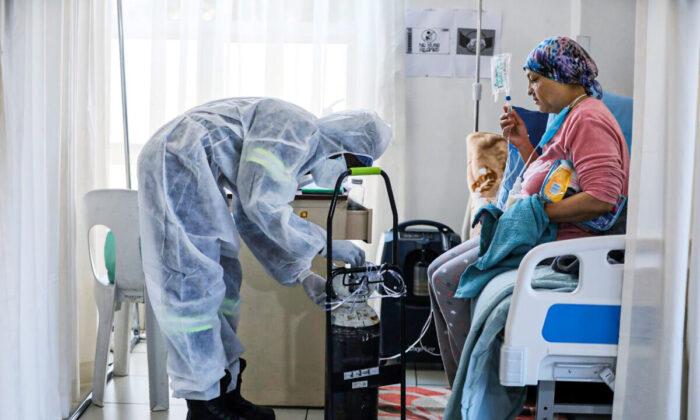The chief executive of a top hospital system in South Africa, where the Omicron COVID-19 variant emerged in November, said most patients at hospitals in Gauteng are showing milder symptoms than during previous waves.
Netcare CEO Richard Friedland said most COVID-19 Omicron patients in Gauteng don’t need oxygen, noting that’s a change from previous outbreaks.
Of the 337 COVID-19-positive patients admitted to Netcare hospitals, about “10 percent are on some form of oxygenation versus 100 percent in the first three waves,” the Netcare CEO stated.
Despite reports of milder cases, Friedland said that South Africans should get vaccinated and wear masks.
Data released by South African officials said that hospitalizations in recent days have climbed. There have been no confirmed reports of anyone dying from the Omicron variant in South Africa or around the world to date.
“Over 71 percent are below 50 years of age, with an average age of 38.5 years,“ he said. ”This compares to only 40 percent below 50 in the first three waves, with an average age of 54 years.”
On Wednesday, Dr. Michael Ryan, the World Health Organization’s chief of emergencies, told reporters that data on the new variant point “to a virus that’s efficiently transmitting and probably more efficiently transmitting than even the Delta variant.”
“We certainly have information from South Africa that many of the patients that are identified with Omicron have a more mild course of disease,” she said, noting only “anecdotal information” is being provided now. “But it does take time for people to go through the full course of their infection.”
WHO announced that Omicron has been reported in 57 countries. At least 19 U.S. states have confirmed cases of the variant.





